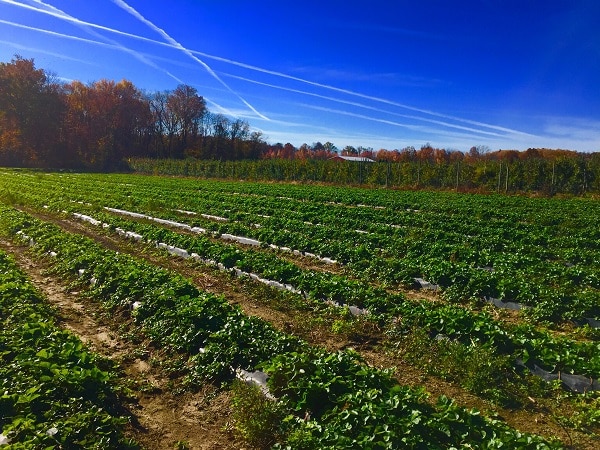If you are new to gardening or have been at it for years, there’s one pesky thing that always seems to be a hassle each year: weeds. Like most people, you probably don’t enjoy weeding your garden. It’s a tedious task that can be pretty frustrating. But what if there were ways to keep your garden weed-free without spending hours on the task? This blog post will discuss some of the secrets to a weed-free garden. It will also provide tips and tricks for keeping those pesky weeds at bay!
Contents
Use Plenty Of Mulch
Mulching is a crucial gardening technique that can help you control weeds and conserve moisture. Mulch is any material that you spread over the soil’s surface to protect it from the elements. Common mulches include wood chips, bark, straw, and leaves. Weed seeds need sunlight to germinate, so you can prevent them from getting the light they need to grow by covering the ground with a layer of mulch. In addition, mulch helps to keep the soil moist by blocking evaporation. This is especially important in hot, dry climates. To get the most weed-prevention benefits from mulch, apply it thickly – at least 4 inches deep. And be sure to replenish it regularly, as it will decompose over time.
Use A Weed Barrier
Anyone who has ever gardened knows that weeds can be a frustrating problem. They steal nutrients and water from your plants, which can be challenging to control. One way to combat weeds is to use a weed barrier. A weed barrier is a sheet of material that you lay over the soil in your garden. It blocks sunlight and prevents weeds from growing. Various types of weed barriers are available, including plastic, fabric, and paper. While a weed barrier can be an effective way to control weeds, choosing the right type of material for your garden is essential. For example, fabric barriers allow water and air to pass through, which is crucial for preventing moisture buildup and promoting healthy plant growth. On the other hand, paper barriers break down quickly and can become a haven for pests.
Plant Cover Crops
Maintaining a weed-free garden can be a challenging and time-consuming task. One way to reduce the amount of weeding that you need to do is to plant cover crops. Cover crops are plants grown not for their fruits or vegetables but for their ability to smother weeds and improve soil health. Common cover crops include beans, peas, oats, barley, and rye. When planting cover crops, it’s important to choose a well-suited species for your climate and growing conditions. For example, if you live in an area with a lot of rainfall, you’ll want to choose a fast-growing crop that can quickly outcompete weeds. By selecting the right cover crop, you can significantly reduce the amount of weeding you need to do in your garden.
Plant Your Garden In Raised Beds
While there are many different ways to garden, one method that can be particularly helpful in keeping your garden free of weeds is planting in raised beds. Raised beds are any garden that is built up from the surrounding soil. You can mound up the soil, use bricks or stones to create walls, or even use recycled materials like tires or pallets. The key advantage of raised beds is that they allow you to control the quality of the soil within the bed, which in turn makes it easier to control the weeds. By keeping the soil in your raised bed free of weeds, you can create a healthier environment for your plants to thrive. In addition, raising the bed can also make it easier to reach your plants, which can be helpful if you have limited mobility.
Be Mindful Of Where You Water
Gardeners know that weeds can be a persistent problem. Even the most well-kept gardens can fall victim to these pesky plants. But what many gardeners don’t realize is that the way they water their gardens can contribute to the growth of weeds. When watering, it’s important to be mindful of where the water is going. If water hits the leaves of your plants, it can spread weed seeds that are already present in the soil. These seeds will then take root and start to grow. To prevent this from happening, water only at the base of your plants. This will ensure that the water goes where it’s needed without giving weeds a chance to get a foothold in your garden.
Use A Natural Weed Killer
We all know that weeds are a pesky problem in the garden. But did you know that there’s an easy and natural way to keep them under control? All you need is white vinegar! White vinegar is an acetic acid that can effectively kill weeds. Just be careful not to get it on your desirable plants, as it will kill them too. To use white vinegar as a weed killer, mix equal parts vinegar and water in a spray bottle. Then, spray the mixture on the leaves of the weeds you want to kill. The vinegar will penetrate the plant’s cell membranes, causing them to dehydrate and die. And that’s it! With just a little bit of white vinegar, you can say goodbye to your weed problems without spending hours pulling them each time they pop up.
Conclusion
Weeds can be a persistent problem in the garden, but you can keep them under control with a little bit of effort. By using some of these simple tips, you can create a weed-free garden that will be the envy of your neighbors. If you are unsure where to get the needed supplies for some of these methods, start with a google search for organic gardening stores in your local area. Try your local home improvement stores if you don’t have any available locally.





